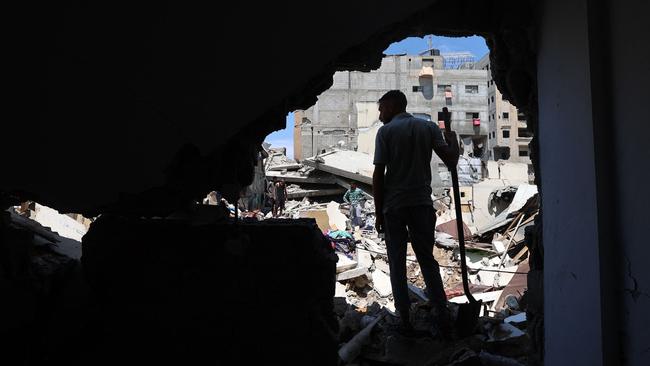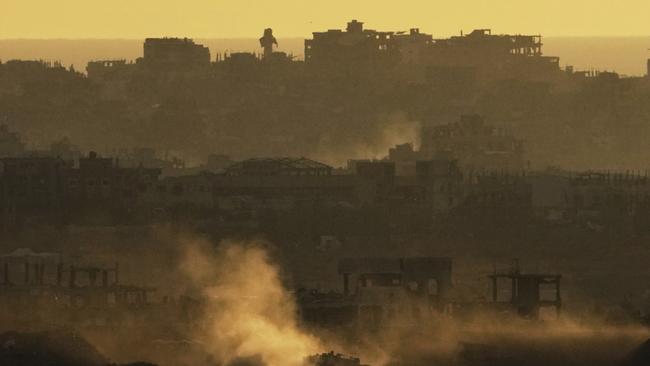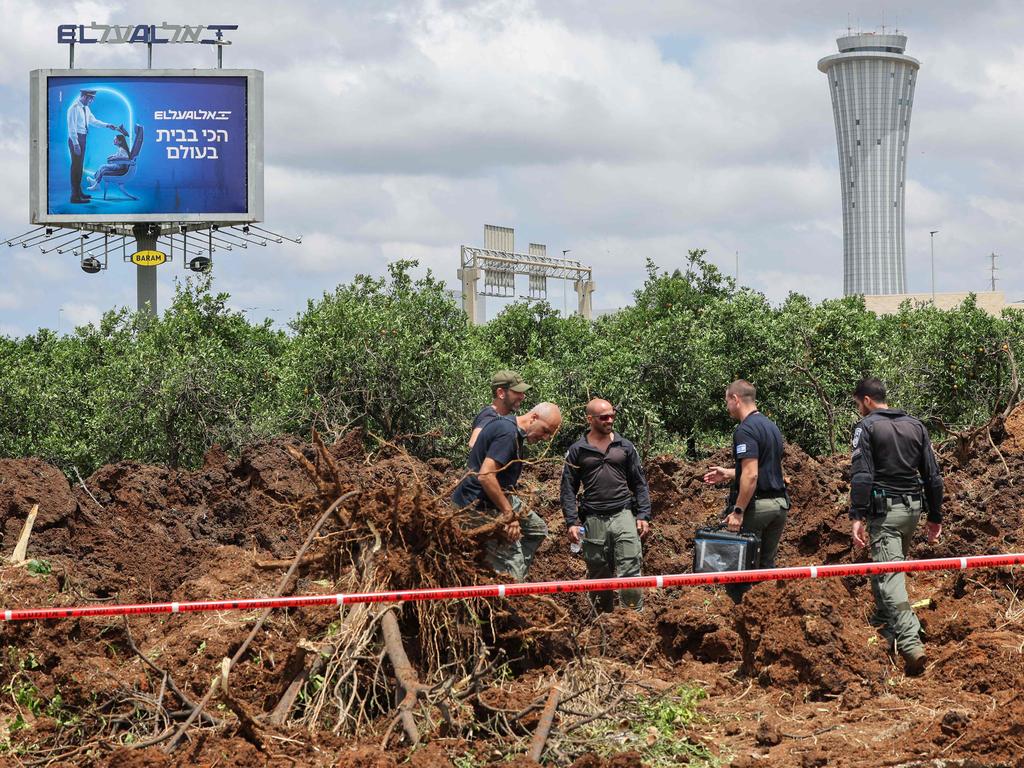Israel is heading for a full occupation of Gaza—and all the risks it entails
Israel’s reservist army is exhausted; if positioned to hold territory in Gaza, the soldiers will become targets for militants. Then there are the legal obligations to the residents of the Strip.

From the beginning of Israel’s war against Hamas in Gaza, officials have said the military wouldn’t occupy the Gaza Strip. Eighteen months later, the government has approved plans to do exactly that.
On Monday, Israel’s government approved a new war plan that includes seizing and holding territory in Gaza, a move that could expose Israel to additional legal requirements toward the civilian population and risk ensnaring the military in a long-term quagmire.
Many of Israel’s most senior wartime leaders have warned against occupying territory, fearing Israel would be stuck in Gaza without any way of installing a local government to replace Hamas. Israeli Prime Minister Benjamin Netanyahu argued that there was no Palestinian alternative ready to take control over the enclave.
Israel’s initial war plans aimed to push out Hamas with an intense ground invasion and then use targeted raids to clear out remaining insurgents. But Israel’s new strategic shift dovetails with expert opinions that it is hard to mount a successful counterinsurgency without a full occupation.

It was clear from the beginning of the military campaign that “the only way to eradicate Hamas, militarily and governmentally, is to take over Gaza and to conquer the area and destroy them,” said Amir Avivi, founder of the Israel Defense and Security Forum think tank and a former deputy commander of Israel’s forces in Gaza.
The new plan also includes moving most of Gaza’s population to an area cleared of militants and weakening Hamas’s grip by taking control of aid distribution.
Israel will begin the new offensive gradually over the next two weeks hoping to pressure Hamas into a cease-fire and hostage-release deal before President Trump visits the region next month, officials familiar with the plan said.
Israeli military experts don’t believe the current plans mark a return to the 38-year occupation of the Gaza Strip that ended in 2005, when Israel unilaterally pulled out its forces. But many foresee a risk of being dragged into another long period of control.
“There’s no intention to hold this territory forever, there’s a desire to create operational control,” said Yaron Buskila, a lieutenant colonel in Israel’s military reserves and chief executive of the Israel Defense and Security Forum. “Operational control means you conquer territory and create military operational control so you can reach any point in the area, such that you make a terror group ineffective.”
Occupying Gaza opens up a new host of challenges for Israel. Its reservist army is exhausted after 18 months of war. The new war plans will require tens of thousands of soldiers. If positioned to hold territory, they will become targets for militants.
“The downside of this method is that you’re static,” Buskila said. “Your enemy can very quickly learn about you and hurt you.”

Holding territory could also burden Israel with new legal responsibilities toward Palestinians. The Geneva Conventions define an occupying power as one that has effective control of a territory, determined primarily by whether the original government is unable to exercise authority and whether the occupier is able to do so.
Under the conventions, occupation is meant to be temporary and the occupying power isn’t supposed to annex any part of the area. The occupier is forbidden from displacing the population, either by forcing them abroad or moving them within the territory. It is also required to administer the territory for the benefit of the population.
That means that as an occupier, Israel would be obliged to provide food, medical care, shelter, law and order, a functioning justice system and other services.
Israel so far has argued it isn’t an occupier in Gaza, because its presence has been mostly temporary and Hamas could still exercise governmental authority.
“Israel points to the most widely accepted understanding of the law, which requires both physical presence and the capacity to operate as a governmental authority to the exclusion of Hamas,” said Ben Wahlhaus, a former international lawyer for the Israeli military.
According to Janina Dill, a professor of global security at the University of Oxford, the new military plan would leave Israel little room to deny that it is an occupying power.
The international consensus is that Israel already has been an occupier to some degree. Organisations including the United Nations and the International Committee of the Red Cross already describe Israel as occupier, arguing it has maintained effective control of the enclave, including over most access points.
“There’s a sliding scale—the more effective control you have, the more responsibility you have,” Dill said. “Israel, basically, has bootstrapped itself officially into the status of an occupying power for the whole of Gaza.”
Most Israelis oppose the occupation of Gaza, although far-right ministers and their constituents want to rebuild Jewish settlements there.
“We are going to occupy the Gaza Strip, finally. We are stopping being afraid of the word ‘occupation,’” far-right Finance Minister Bezalel Smotrich said in a recorded interview on Monday.
The impact of these new obligations are yet to reverberate in Israel, said Ofer Shelah, a military expert at the Institute for National Security Studies, a think tank in Tel Aviv.
“Israelis don’t feel it right now, but there will be a tipping point once we are committed there,” he said.
Wall Street Journal





To join the conversation, please log in. Don't have an account? Register
Join the conversation, you are commenting as Logout